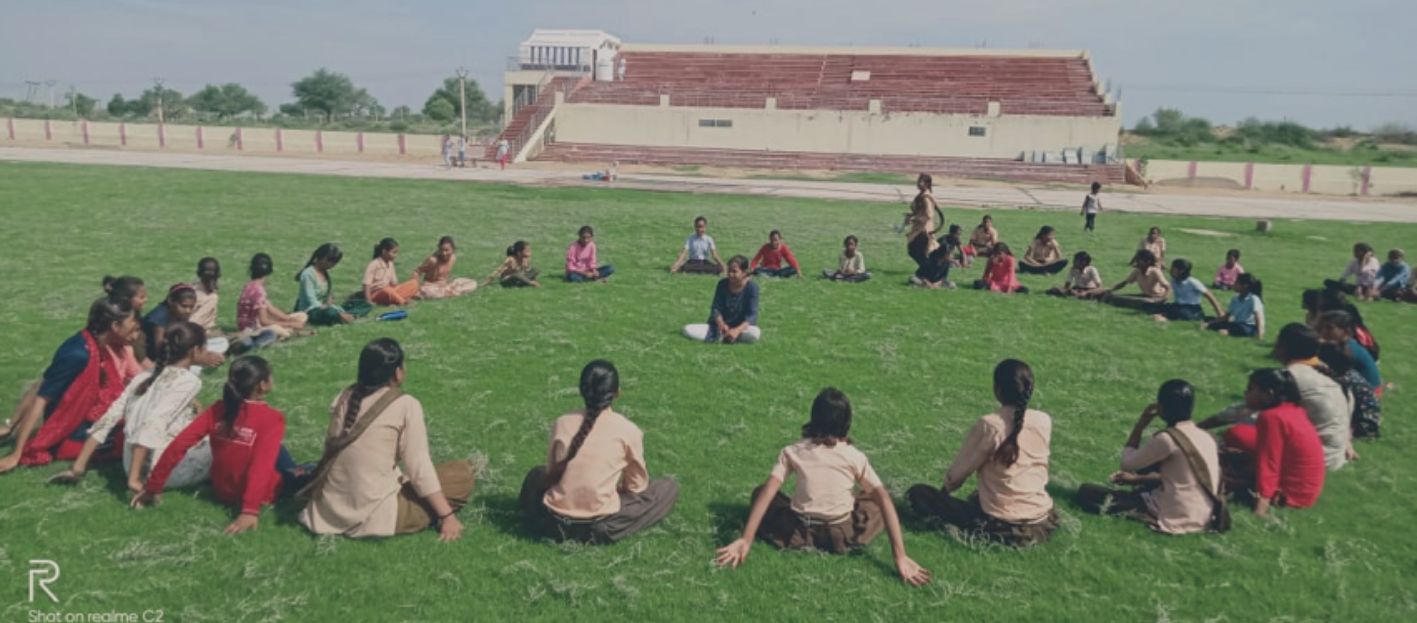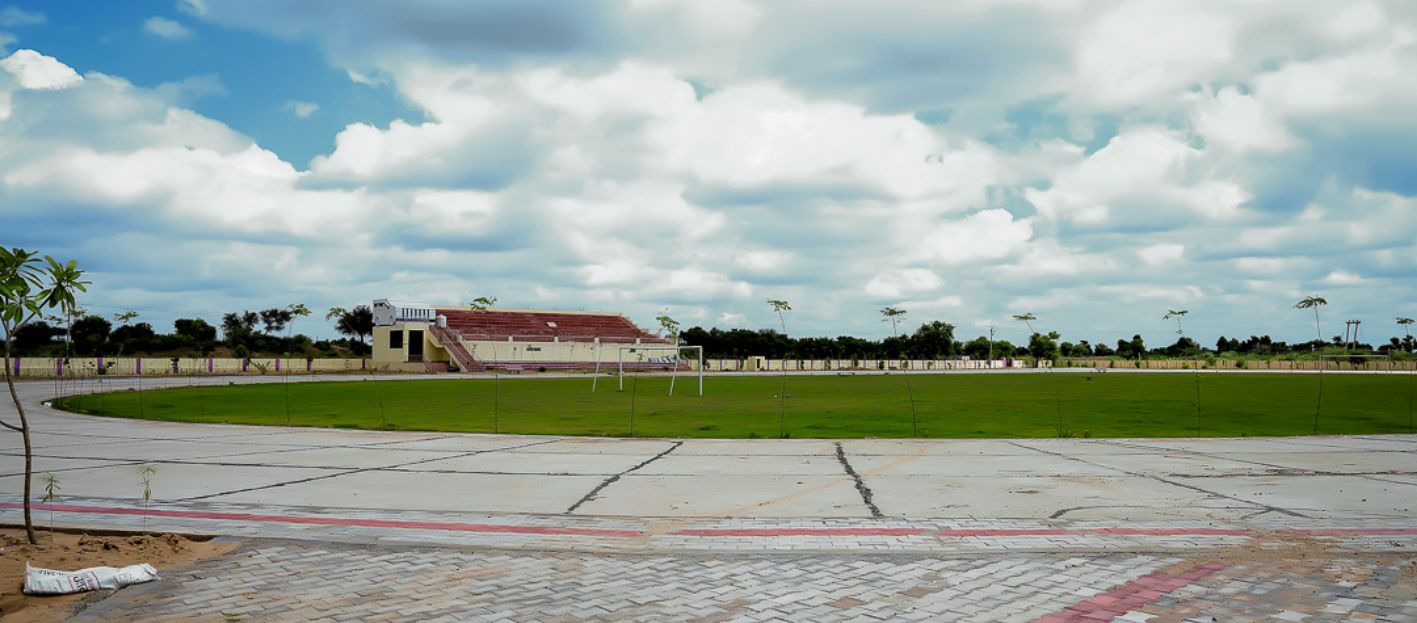Hari Garhwal

MBA '12
Change is inevitable, and it is often in our hands to ensure that change is for the better. Hari Garhwal, a graduate of Fuqua’s Global Executive MBA Class of 2012, has made it his mission to improve adolescent female literacy in the state of Rajasthan, India, where many remote village illiteracy rates have hovered around 50%. Through the Garhwal Foundation’s work of fostering excellence in athletics and academics, the targeted village schools’ student pass rate has climbed to almost 100%. Inspired by his childhood memories and now leveraging his Fuqua experience and proven prototypes, Garhwal leads by example to stimulate positive change at an even larger scale in communities throughout India.

Looking back to the beginning, what inspired you to embark on this endeavor?
I believe that experiences of formative years and their persistent memories are a powerful force residing dormant, just waiting for a spark to ignite it into action. My Fuqua experience, sound training in ethical leadership, and absorbing the works of Professor J. Gregory Dees served as a catalyst to reflect on those experiences of formative years. In particular, I looked back on the devastating effects of the vicious cycle of female illiteracy in the villages of Rajasthan. It affects quality of life of the entire household. It is a root cause of poverty, poor health, and poor self-esteem, and its ill effects seep into the local, state, and national-level economic outcomes. Passion to do something, in whatever small way, arose out of these formative years’ experiences, Fuqua training, and deeper reflections.
In addition to improving illiteracy rates, what role do you hope introducing athletics facilities and programs will have in the lives of women in these villages? What are the ripple effects of this programming?
We have built an athletic facility that is designed to nurture, support, and train state, national, and international-level athletes. The second stadium is being built in partnership with another reputable NGO, which is an even better and larger athletic facility. As Duke understands so well, athletics and academics are inseparable and go together. Nonathletes take equal pride in being Blue Devils and in the ever-lasting leadership and legacy of the one and only Coach Krzyzewski. We intend to focus on women-centric sports and develop a strong bond between athletics and academics. Villages have become fertile grounds to recruit Olympian-caliber athletes. For example, a small village in Punjab, Sansarpur, which has a population of merely 5,000, has provided India 14 Olympians.
In the neighboring state of Haryana, Khundra village has produced a young athlete, Neeraj Chopra, who received his first gold at the Tokyo Olympics and has become a talk of the country, which has motivated youngsters to seriously pursue athletics at the international level. There are many more inspirational examples such as these. We see tremendous opportunity in building world-class athletics facilities that would have ripple effects and inspire village youth, especially adolescent girls, to excel in athletics and academics.

What moves you to use philanthropy to make an impact on the causes about which you’re passionate? Have you always had this drive, or was there a particular time or event that inspired you?
Given the $13 billion Duke endowment, my giving at present is insignificant. My motivations here are two-fold: As featured in the previous article, I am simply “Investing in a Brand.” Second, I have a great sense of gratitude. I am grateful to Fuqua for the finest education in ethical leadership. My objective was not to just obtain another degree, but to absorb the Duke culture, the Duke spirit, and self-learn outside the program curriculum. For example, I am deeply indebted to Professor Dees and his thought-provoking book, Enterprising Nonprofits (He parted from us way too soon); Professor Campbell Harvey and his leadership in CFA Institute, where I am a member as well; Professor Dan Ariely and his acclaimed book, Predictably Irrational. Their areas were outside my curriculum, but I made serious efforts to absorb their talent and exceptional writings. The Duke spirit will live with me forever. So, my annual giving is just a small token of my appreciation for Fuqua experiences.
What is your earliest memory of giving back?
Giving back is not a programmed endeavor in our family. Today I can trace back five generations, and my earliest memory of our family engaged in giving back to the community was observing my father. He worked tirelessly to improve the lives of the villagers by engaging with the community and public officials to link the village to the road, connecting it to electricity, telephone, and running water in each home as well as transitioning grammar school (up to 6th grade) to high school (to 12th grade). He did not lecture us as to the civic duty of community engagement, leadership, or giving back. We have had no such discussions. However, he let us watch his tireless efforts in these directions. This is a classic case of Leading by Example. With that spirit residing dormant came the teaching of ethical leadership at Fuqua and the works of Professor Dees, activating my commitment in giving back to causes I deeply believe in: supporting excellence in academics and athletics in village schools with a focus on female literacy.
How does it make you feel to witness the impact the Garhwal Foundation is already having, such as the dramatic improvement in illiteracy rates or the student awarded a scholarship to pursue a career in medicine?
It is a wonderful feeling to create a momentum, develop some prototypes, and then scale it up. Seeing the school pass rate climb to 100% from about 50% when we started this program is gratifying. Visitors from distant villages, public officials, and public leaders visit the facility and admire what has been accomplished. Digitization of classrooms has energized other village educators, and they are adapting to the work already done.
What is an obstacle you’ve encountered in the foundation’s efforts in India, and how did you overcome it?
I went there with full knowledge that there will be many, many obstacles, and I knew that leading these efforts from 9,000-mile distance would be a challenge. Throughout this journey there have been COVID-19 and lockdowns, construction delays and cost overruns, and local team conflicts. A one-year project took nearly three years to complete. However, I expected all this going into it, and thus there are no disappointments whatsoever. The school principal and teaching staff, village inhabitants, governmental authorities, political leadership, and journalists all have been highly supportive and appreciative of the mission. I have no complaints, no regrets. This overwhelming support has encouraged me to scale up the mission.
How has your Fuqua experience or network helped you as you’ve navigated the complexities of such a large endeavor?
The Fuqua experience has prepared me well for ethical leadership, leading by example, and creating great teams, delegating and inspiring them to pursue excellence while monitoring the progress. All this Fuqua knowledge was drilled into us over and over again, preparing us for undertaking projects that start a movement and then executing them efficiently.
Are there other issues or causes that you are passionate about? Do you have plans for future projects that you’d like to pursue?
We have focused on two villages to use them as successful prototypes. We have proven that the mission objectives are achievable. Our work is noticed and appreciated at a local level, praised by governmental authorities and political leadership, and its success has been reported in local newspapers. We will continue to be involved in these prototypes, but it is time to scale it up in the form of a well-organized movement that is worthy of my Fuqua experiences. The next plan is to take this concept to 3,000 villages in hopes to build a momentum that reaches across the entire state. We are extremely pleased with the outcomes to date. Independent of the outside funding, the foundation has committed to building a new, modern school building. The government has already allotted the requisite land, and I am pursuing an exceptional New York based architect, Diane Kellogg, to help with a design similar to the one she created for another school in that desert. If we cannot get her commitment, we are ready to use a local architect.
Learn more about the Garhwal Foundation here.